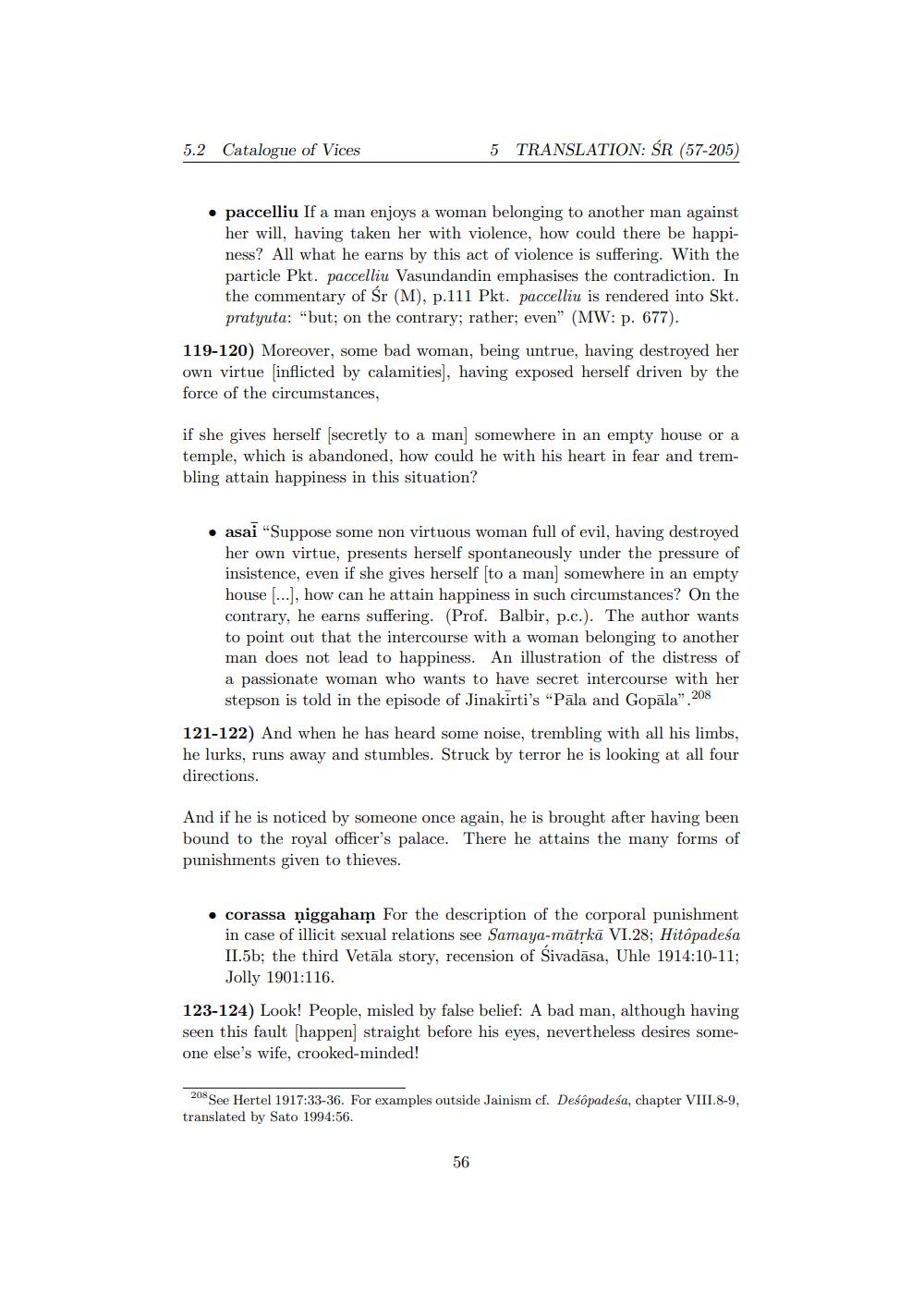________________
5.2
Catalogue of Vices
5 TRANSLATION: ŚR (57-205)
• paccelliu If a man enjoys a woman belonging to another man against
her will, having taken her with violence, how could there be happiness? All what he earns by this act of violence is suffering. With the particle Pkt. paccelliu Vasundandin emphasises the contradiction. In the commentary of Sr (M), p.111 Pkt. paccelliu is rendered into Skt. pratyuta: "but; on the contrary; rather; even" (MW: p. 677).
119-120) Moreover, some bad woman, being untrue, having destroyed her own virtue inflicted by calamities), having exposed herself driven by the force of the circumstances,
if she gives herself (secretly to a man somewhere in an empty house or a temple, which is abandoned, how could he with his heart in fear and trembling attain happiness in this situation?
• asai "Suppose some non virtuous woman full of evil, having destroyed
her own virtue, presents herself spontaneously under the pressure of insistence, even if she gives herself (to a man somewhere in an empty house [...], how can he attain happiness in such circumstances? On the contrary, he earns suffering. (Prof. Balbir, p.c.). The author wants to point out that the intercourse with a woman belonging to another man does not lead to happiness. An illustration of the distress of a passionate woman who wants to have secret intercourse with her stepson is told in the episode of Jinakirti's "Pāla and Gopāla" 208
121-122) And when he has heard some noise, trembling with all his limbs, he lurks, runs away and stumbles. Struck by terror he is looking at all four directions.
And if he is noticed by someone once again, he is brought after having been bound to the royal officer's palace. There he attains the many forms of punishments given to thieves.
• corassa niggaham For the description of the corporal punishment
in case of illicit sexual relations see Samaya-mātskā VI.28; Hitôpadesa II.5b; the third Vetāla story, recension of Sivadāsa, Uhle 1914:10-11; Jolly 1901:116.
123-124) Look! People, misled by false belief: A bad man, although having seen this fault (happen straight before his eyes, nevertheless desires someone else's wife, crooked-minded!
208 See Hertel 1917:33-36. For examples outside Jainism cf. Desópadeśa, chapter VIII.8-9, translated by Sato 1994:56.




